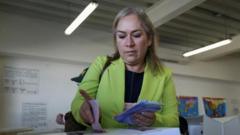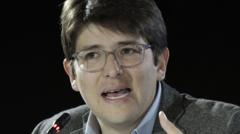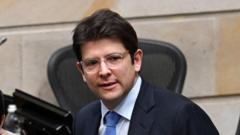The election of Silvia Delgado, a former lawyer for drug lord Joaquín "El Chapo" Guzmán, raises questions about judicial integrity and public confidence in the system.
Former El Chapo Lawyer Wins Judicial Seat in Landmark Elections

Former El Chapo Lawyer Wins Judicial Seat in Landmark Elections
Silvia Delgado's election marks a controversial turning point in Mexico's judicial system.
Silvia Delgado, a lawyer previously involved in the defence of notorious drug lord Joaquín "El Chapo" Guzmán, has secured a judgeship in Mexico's inaugural judicial elections. On Tuesday, the results revealed that Delgado has obtained the necessary votes to assume the role of local criminal judge in Ciudad Juárez, a city located on the US-Mexico border. Her candidacy attracted significant controversy, as a prominent transparency organization accused her of having ties to organized crime, allegations she has firmly denied, asserting that her past role was merely fulfilling her legal responsibilities.
At 51, Delgado was part of the legal team representing El Chapo prior to his extradition to the United States in 2017. The Sinaloa cartel leader was later convicted of drug trafficking charges in 2019 and is currently serving a life sentence in a supermax facility in Colorado. In a pre-election interview with the BBC, Delgado emphasized the principle of legal representation for all individuals, rejecting any notion of conflict of interest should she be elected.
After the voting results were released, Delgado pledged to withhold comments until her election could be officially certified. This election holds the distinction of being the first of its kind conducted in Mexico, resulting from sweeping reforms advocated by the governing Morena party. Proponents argue that the direct election of judges, including Supreme Court justices, enhances the democratic nature of the judiciary, making it more accountable to the populace.
Conversely, critics caution that such reforms may compromise judicial independence. The voter turnout for this historic election was notably low at 13%, the least amount witnessed in any federal election throughout Mexico's history, a statistic indicative of the limited enthusiasm among Mexican citizens regarding the direct election of judges. Despite low turnout, President Claudia Sheinbaum heralded the event as a significant achievement.




















